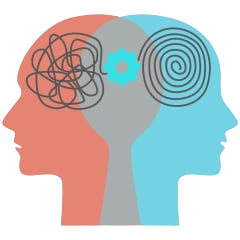COVID-19 Resources for Mental Health Coaches... Learn More
Obsessions and Compulsions (OCD)
Obsessions and Compulsions, commonly known as Obsessive-Compulsive Disorder (OCD), is a mental health condition characterized by persistent, intrusive thoughts (obsessions) that lead to repetitive behaviors or mental rituals (compulsions). Individuals with OCD may experience significant distress due to these uncontrollable thoughts and feel compelled to perform specific rituals in an attempt to alleviate anxiety or prevent a feared event.
Obsessions often center around themes like contamination, harm, or a need for symmetry, while compulsions manifest as repetitive actions such as washing, checking, or counting. Despite knowing that these behaviors are excessive, individuals with OCD find it challenging to resist the urge.
Effective treatment for OCD typically involves a combination of cognitive-behavioral therapy (CBT), specifically exposure and response prevention (ERP), and sometimes medication, particularly selective serotonin reuptake inhibitors (SSRIs). CBT helps individuals challenge and change their thought patterns, while ERP involves gradually facing and resisting the compulsive behaviors.
Understanding and support from mental health professionals, friends, and family are crucial in managing OCD. With appropriate treatment, individuals with OCD can lead fulfilling lives, learning to manage and cope with their obsessions and compulsions.





